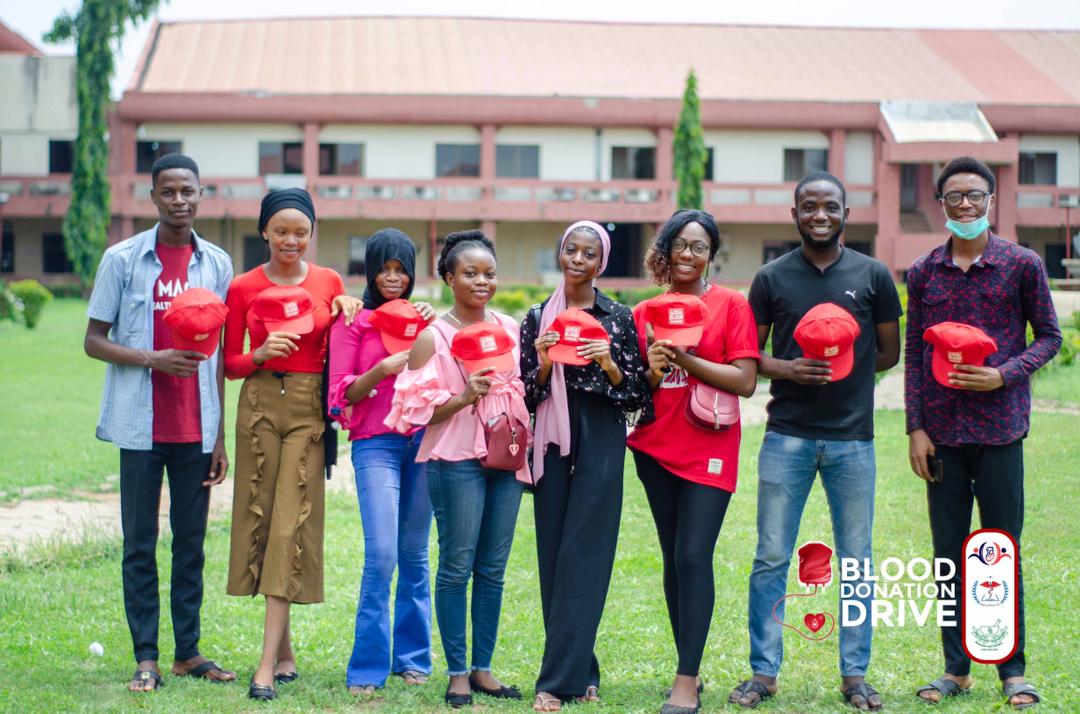Towards bridging the gap in voluntary blood donation which is less than 15 per cent in Nigeria, Pharmacy and medical students of the University of Ilorin (UNILORIN) have braced the odds to freely donate blood for the University of Ilorin Teaching Hospital blood bank.
The students who were over hundred in number, donated at least a pint of blood each, in commemoration of World Blood Donor Day and to reduce the acute shortage of blood supply in the country for accident victims, pregnant women and other patients in need of blood.
In the same vein, the World Health Organisation (WHO) has stressed the need for more voluntary blood donation across the globe, saying that the need for blood is universal, but access to blood for all those who need it is not. Blood shortages are particularly acute in developing countries.

The apex health institution recognised the role of young people in blood donation for this year’s celebration of the Day, marked on every 14 June, noting the crucial positions they occupy in global population, initiatives and programmes, which place them at a better pedestal to donate more blood to safe those in dire need of it.
In a statement on the 2021 celebration of World Blood Donor Day, WHO stated “In many countries, young people have been at the forefront of activities and initiatives aimed at achieving safe blood supplies through voluntary, non-remunerated blood donations. Young people form a large sector of the population in many societies and are generally full of idealism, enthusiasm and creativity”.
The event, organised by Pharmaceutical Association of Nigerian Students (PANS) UNILORIN, in conjunction with Ilorin University Medical Students’ Association (ILUMSA); Maternal, Adolescent and Child Health Initiative and the Hematology Unit of the Teaching Hospital, had students under the umbrella of Broad Multi-Disciplinary Team in attendance.
Speaking on the importance of the exercise, leader of UNILORIN PANS, Yusuf Olalekan, Babatunde stated that the essence of each pint of blood donated by each student cannot be over-emphasized. To ensure safety of the blood donated, he said prior to the donation, donors were being screened and sensitized on the importance and requirements for donation, by the Hematology unit of the Teaching Hospital, while certain myths regarding blood donation were debunked.
The amount of blood supply in Nigeria, Babatunde continued, is insufficient to meet the needs of accident victims, pregnant women, surgical patients, anemic patients and a lot of other patients who need blood transfusion. Regular blood donation can help save a lot of lives and reduce preventable mortalities. The high maternal mortality rate can also be reduced if there is regular blood supply for pregnant women who experience hemorrhage.
This year’s theme “Give blood and keep the world beating” emphasizes on the role young people in ensuring constant blood supply. Young people all around the world have taken the stance and have been on the forefront of activities aimed at creating awareness on blood donation and also taken part in the process.
“We do not want to be left behind in this humanitarian work and since we understand the fact that the need for blood never stops, we therefore took it as a responsibility to ensure voluntary donations were conducted to mark the day so as to maintain sufficient blood supply. After a successful event, the most important lesson learned was that the youth can be a positive force for development and we hereby call and encourage youths to embrace the humanitarian call to donate blood and inspire others to do the same.
“Hopefully, other schools and institutions too can join in this blood donation drive by sensitizing members, raising awareness and increasing donor blood supply in local clinics and primary health care centres”, he quipped.
The world health body however highlighted some specific specific objectives of this year’s campaign, which are listed as follows: “thank blood donors in the world and create wider public awareness of the need for regular, unpaid blood donation; promote the community values of blood donation in enhancing community solidarity and social cohesion; encourage youth to embrace the humanitarian call to donate blood and inspire others to do the same; and celebrate the potential of youth as partners in promoting health.










